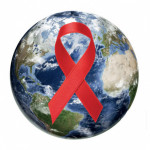The World Health Organization (WHO) has issued new guidelines for treating bacterial sexually transmitted infections (STIs) in an effort to combat growing drug resistance to gonorrhea, chlamydia and syphilis.
The directive is based on the latest available scientific evidence and follows a recent warning from the Centers for Disease Control and Prevention (CDC) that gonorrhea in the United States has shown signs of emerging drug resistance.
The CDC warned that strains of gonorrhea might eventually become untreatable without the approval of new, effective antibiotic treatments. Gonorrhea has developed resistance to every antibiotic used to combat it. New treatments are under investigation, but development is a slow process, and there is no guarantee they will be safe and effective.
WHO estimated that worldwide, 131 million people contract chlamydia, 78 million contract gonorrhea and 5.6 million people contract syphilis.
The last few years have seen a rapid increase in drug resistance to these three STIs, each of which can increase the risk of HIV transmission. Gonorrhea has developed the strongest drug resistance, with health officials already detecting multidrug-resistant strains.
“Chlamydia, gonorrhea and syphilis are major public health problems worldwide, affecting millions of peoples’ quality of life, causing serious illness and sometimes death,” Ian Askew, PhD, WHO’s director of reproductive health and research, said in a press release. “The new WHO guidelines reinforce the need to treat these STIs with the right antibiotic, at the right dose, and the right time to reduce their spread and improve sexual and reproductive health. To do that, national health services need to monitor the patterns of antibiotic resistance in these infections within their countries.”
WHO has called on nations to update their gonorrhea treatment guidelines to combat the growing threat of drug resistance, recommending whichever antibiotic would be the most effective based on the local patterns of drug resistance. WHO does not recommend quinolones for gonorrhea treatment because of widespread resistance to the antibiotic drug class.
For syphilis treatment, the agency recommends a single dose of benzathine penicillin injected into the buttocks or thigh muscle. Benzathine penicillin is more effective and less expensive than oral antibiotics, but there remains a threat of shortages of this treatment. WHO is taking steps to help address this problem.
WHO recommends that countries follow the chlamydia guidelines in the Global Health Sector Strategy for Sexually Transmitted Infections (2016–2012), which governments endorsed at the World Health Assembly in May 2016.
To read the WHO press release, click here.
Click on these hyperlinks to read the WHO gonorrhea, chlamydia and syphilis treatment guidelines.







Comments
Comments